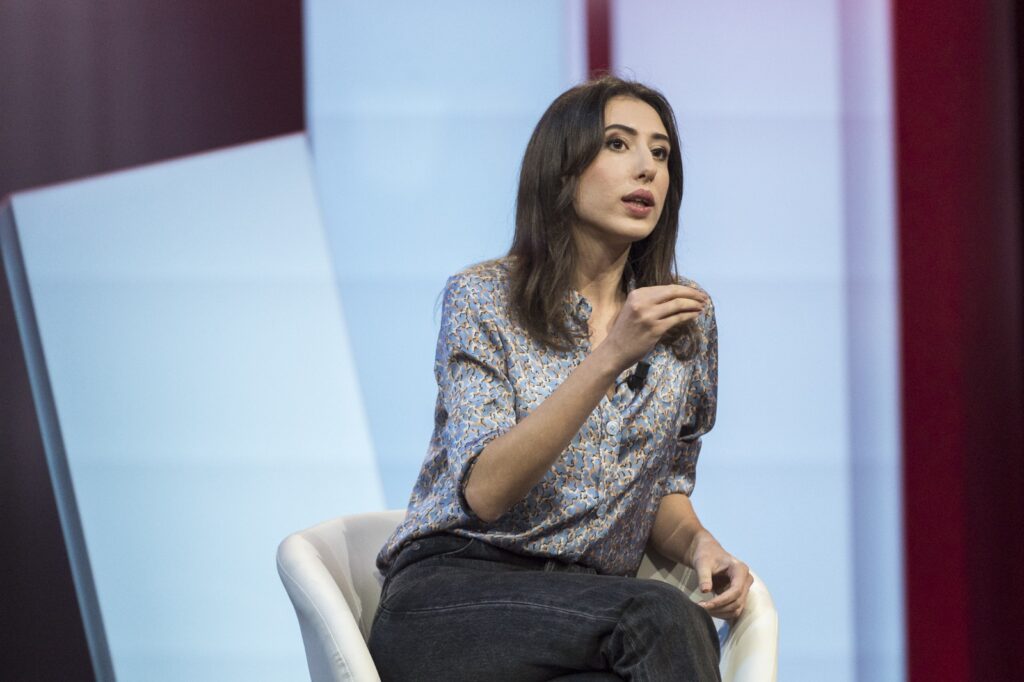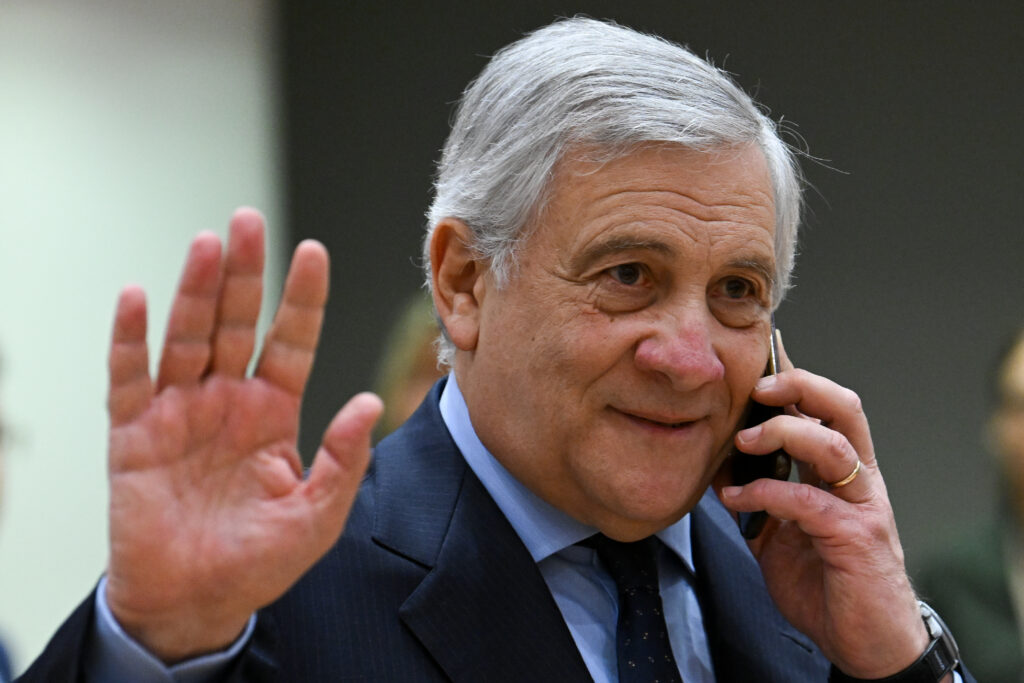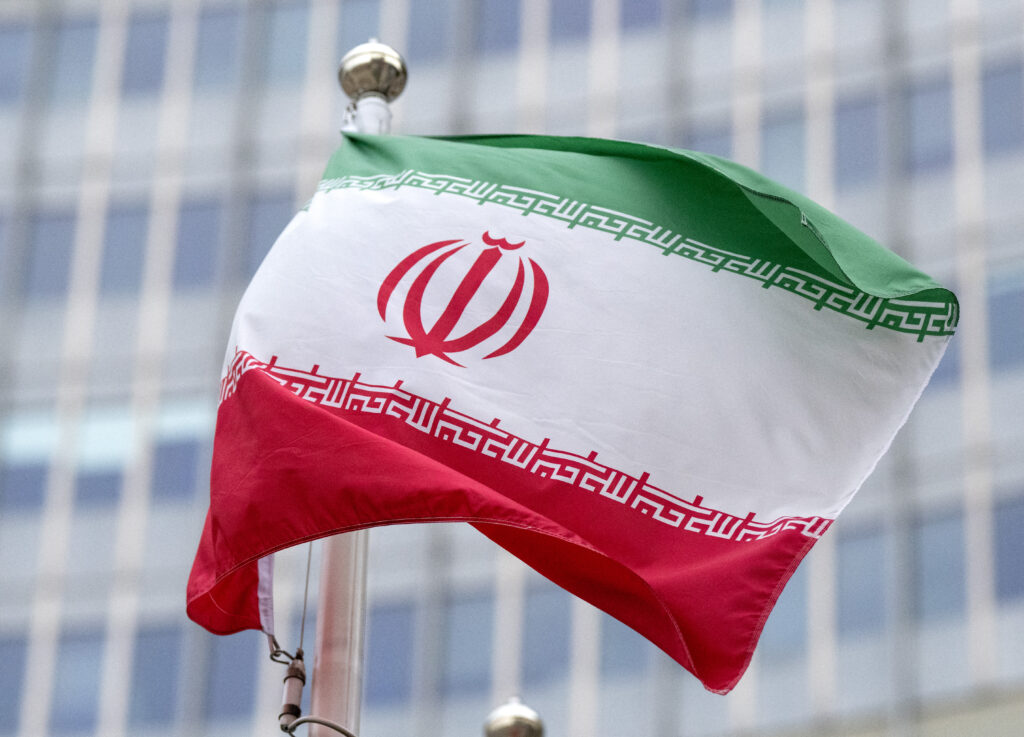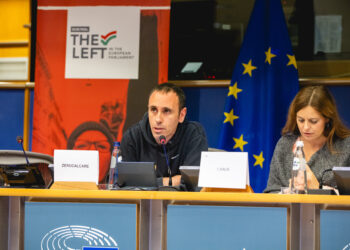Brussels – For the past week, the fate of Cecilia Sala has kept the Italian public in suspense. And now the case of the journalist arrested in Iran last Dec. 19 is also reaching Brussels, where twelve-star diplomacy is beginning to speak. Meanwhile, an extraordinary summit was held in Rome among government officials to update the executive’s strategy after the latest revelations about the less-than-dignified conditions of Sala’s detention in Tehran.
As is often the case in such cases, in recent days, there has been conflicting information about the actual conditions in which Italian journalist Cecilia Sala (a contributor to the Foglio and Chora Media) would be detained in Evin Prison, Tehran. After the first news, released last Dec. 27, which spoke of solitary confinement, Foreign Minister Antonio Tajani was quick to point out that Sala would not be in solitary confinement and that, in her “single cell,” she would receive “treatment that respects the dignity of the person.”

But just yesterday, on the first day of the new year, more revelations made by friends of Sala’s family members were released by the Italian media, asserting that the journalist is indeed in solitary confinement and that her conditions of detention are harsh: “I sleep on the floor in the cell and they even took away my glasses,” she allegedly confessed to relatives. The Corriere della Sera writes that “in the cell long as she is lying down,” Sala sleeps “on a blanket” and “has another blanket to protect herself from Evin’s cold and freezing weather.”
“She doesn’t even see the guards spying and checking on her because they pass her food through a slot in the door,” it further reads, and she allegedly did not receive the “comfort items” (including a panettone, chocolate, cigarettes, books, an eye mask to sleep while protecting herself from the 24-hour light). “Make it quick,” Sala allegedly pleaded. According to the same sources, the journalist has not received visitors since Dec. 27, the day she saw the Italian ambassador to Iran, Paola Amadei and when the news of her arrest was made known.
So, at 4 p.m. today, Prime Minister Giorgia Meloni met with Tajani, Justice Minister Carlo Nordio, Undersecretary to the Presidency of the Council Alfredo Mantovano, and the intelligence services to assess the situation and agree on the strategic line to be taken vis-à-vis the Islamic Republic. At the moment, it is unclear how the executive intends to involve parliamentary oppositions, which have also asked to contribute to an early recomposition of the crisis.

In the morning, Iran’s ambassador to Rome, Mohammad Reza Sabouri, has been summoned to the Ministry of Foreign Affairs to receive formal protests from the government. The foreign minister wrote on X that the executive, “as from the first day of Cecilia Sala’s arrest, has been working tirelessly to bring her home, and we demand that all her rights be respected.” The Italian government calls on the ayatollahs to release Sala immediately and, in the meantime, ensure “dignified detention conditions,” as well as to ensure the journalist’s “full consular assistance” by allowing Ambassador Amadei “to visit her and provide her with the comfort supplies that she has been denied so far.”
On the contrary, Tehran claims it is treating Sala with dignity and respect. However, her arrest appears to be an instrumental move in a diplomatic game that would point to a prisoner exchange. The journalist would not be detained for some specific violation but simply because she is Italian. She would be released only on condition of the release of Iranian citizen Mohammad Abedini, who was arrested at Malpensa airport last December 16 at the request of the United States. Washington would like to extradite him because they hold him responsible, along with alleged accomplice Mohammad Sadeghi (already arrested in the U.S.), for exporting to the Islamic Republic technological components used in the manufacture of some military drones that killed three U.S. soldiers in Jordan in January 2024.
It is, moreover, the Iranian Embassy in Rome itself that puts Sala and Abedini on the same level: at today’s meeting, a communication on X reads, “We have discussed and exchanged views about Iranian citizen Mohammad Abedini, detained in Milan on false charges and Mrs. Cecilia Sala, an Italian citizen, detained in Iran for violation of the laws of the Islamic Republic.” At this time, Abedini is jailed in Milan, waiting for judicial authorities to rule over the request for extradition to the United States.

In the meantime, the Sala case has reached Brussels. EU High Representative for Foreign Policy Kaja Kallas said today (Jan. 2) to Repubblica that “journalism is not a crime” and that “no one should be detained for doing their job.” “I call for the immediate release of Italian journalist Cecilia Sala who was arrested in Iran,” the EU diplomacy chief reiterated that “every journalist should have the freedom to report without fear of arrest or persecution.”
“While the world is in turmoil,” she added, “the role of journalism is more essential than ever.”
A testimony of solidarity also came from Ilaria Salis, an Italian MEP who was elected last June on the lists of Alleanza Verdi e Sinistra (Avs) while she was detained in Hungary in connection with events (not yet clarified) allegedly involving an assault on a far-right militant. “I can’t help but recall the time when I too was put in solitary confinement in a prison in a foreign country, far from home,” Salis wrote on X, also noting that “the degrading and dangerous conditions in which Cecilia is being held in Tehran’s Evin Prison are even worse than those I experienced in Budapest.”
English version by the Translation Service of WithubFaced with what is happening to journalist Cecilia Sala, it is imperative to act with determination, intelligence and effectiveness. We need to “act fast”: we need to bring Cecilia home as soon as possible.
I can’t help but remember the time when I too was pic.twitter.com/QENpQnrz3d.
– Ilaria Salis (@SalisIlaria) January 2, 2025






